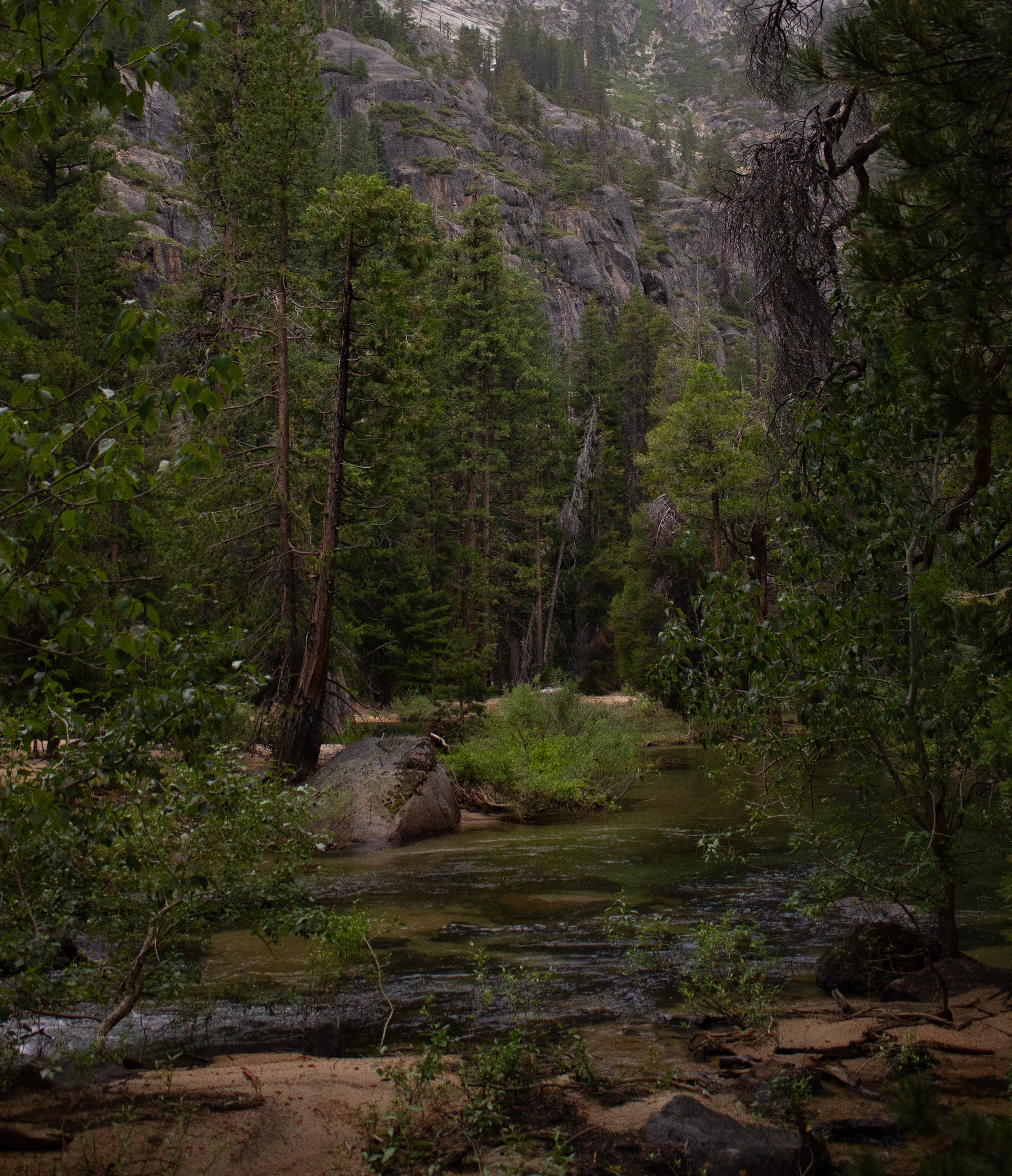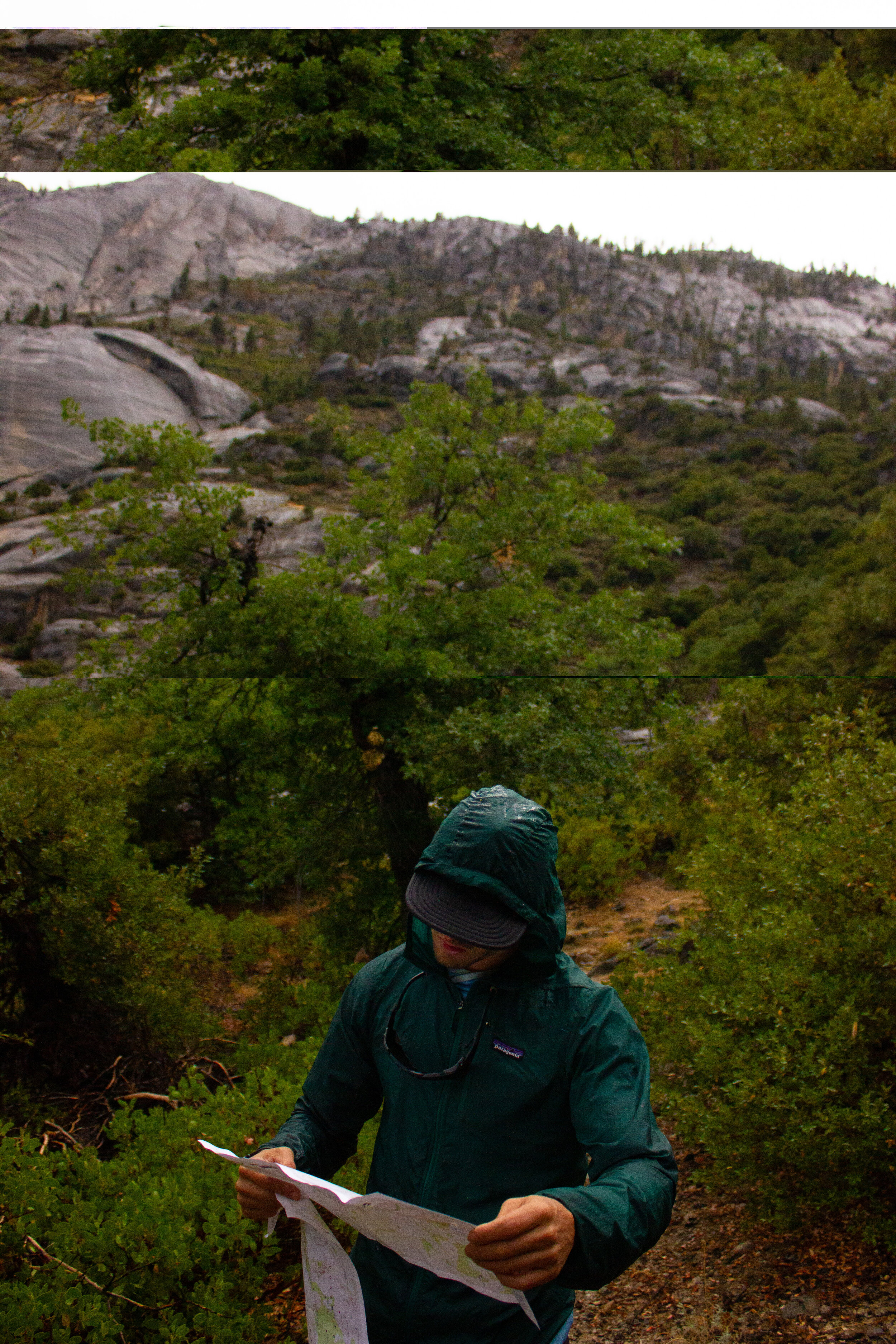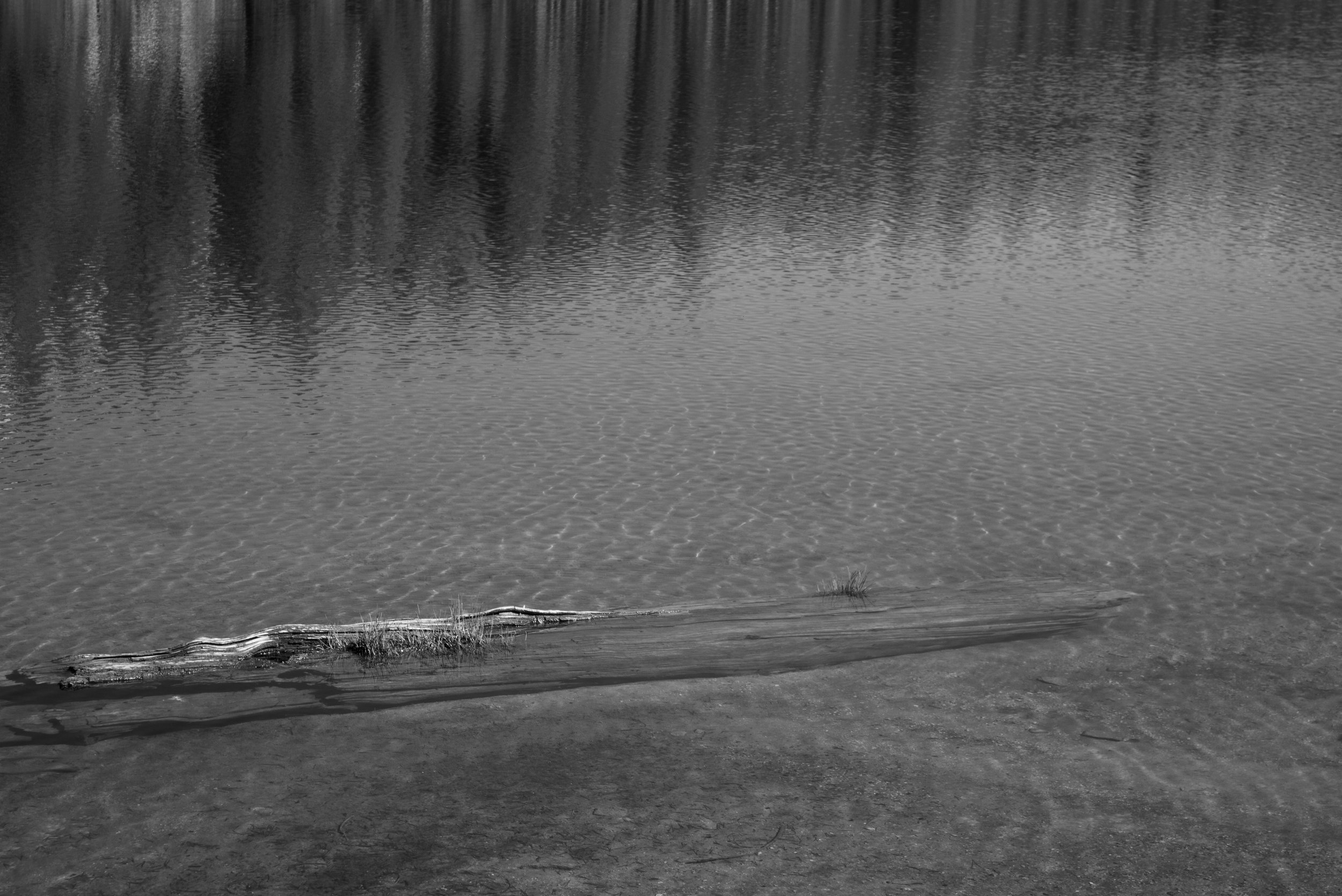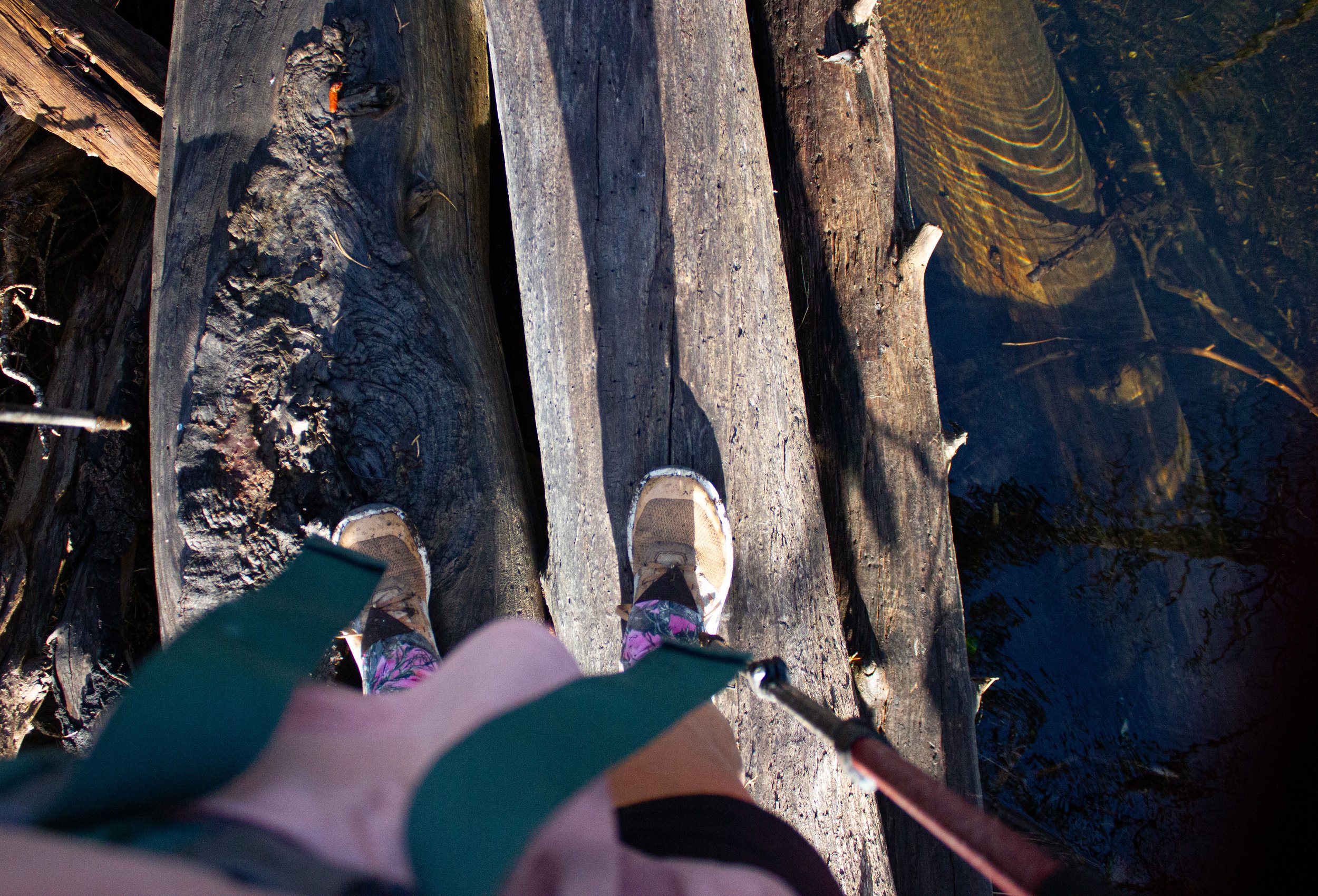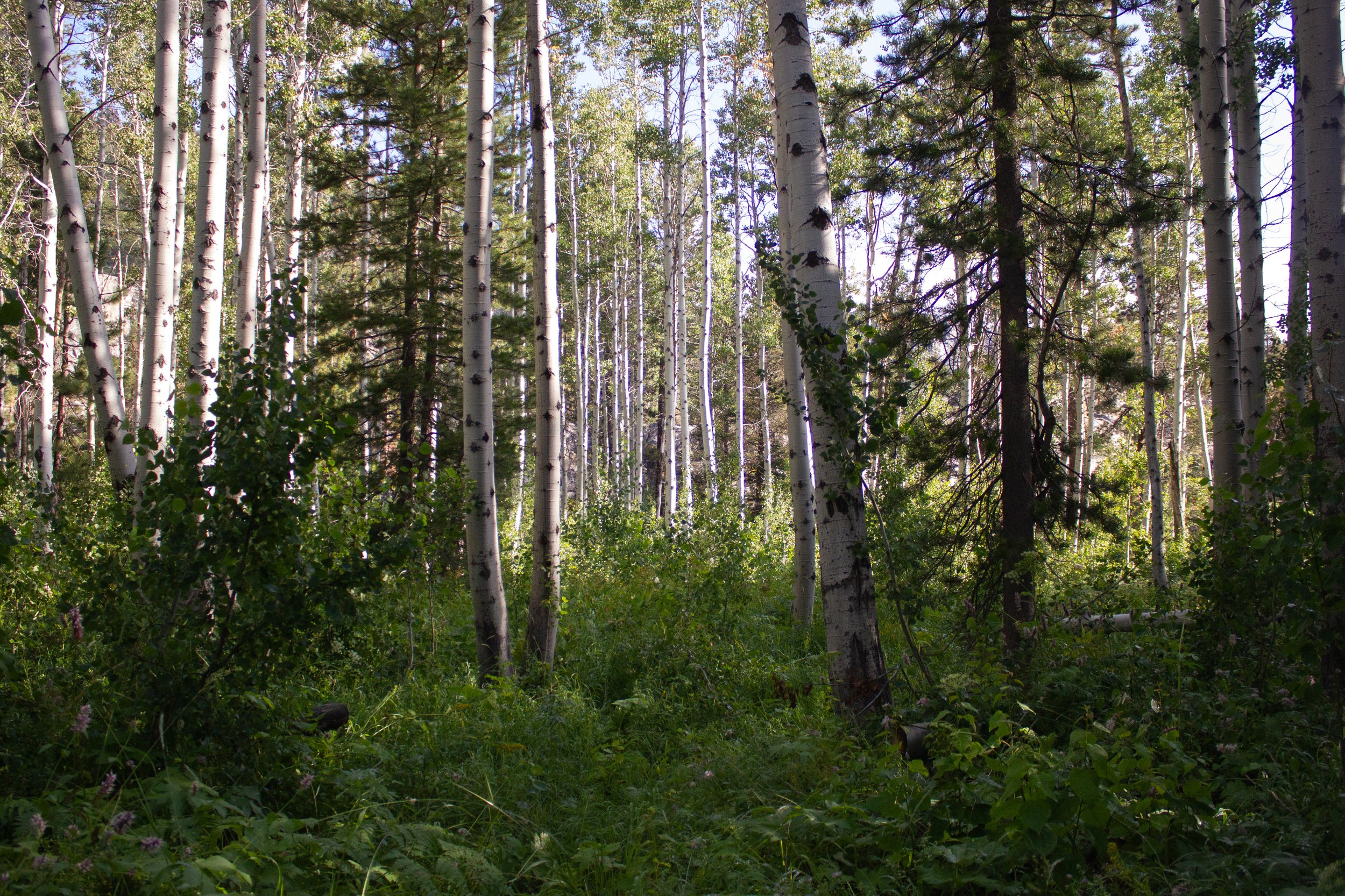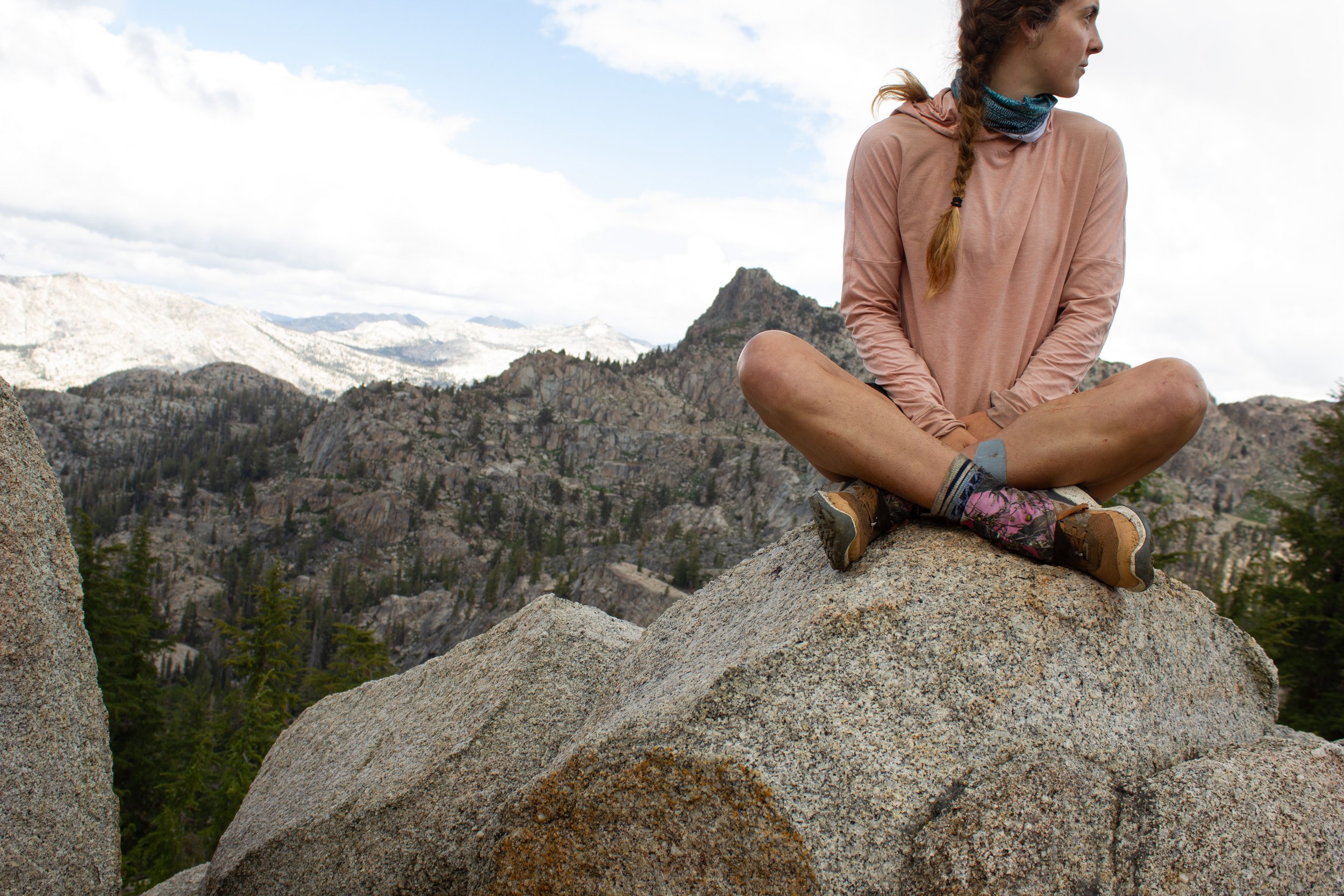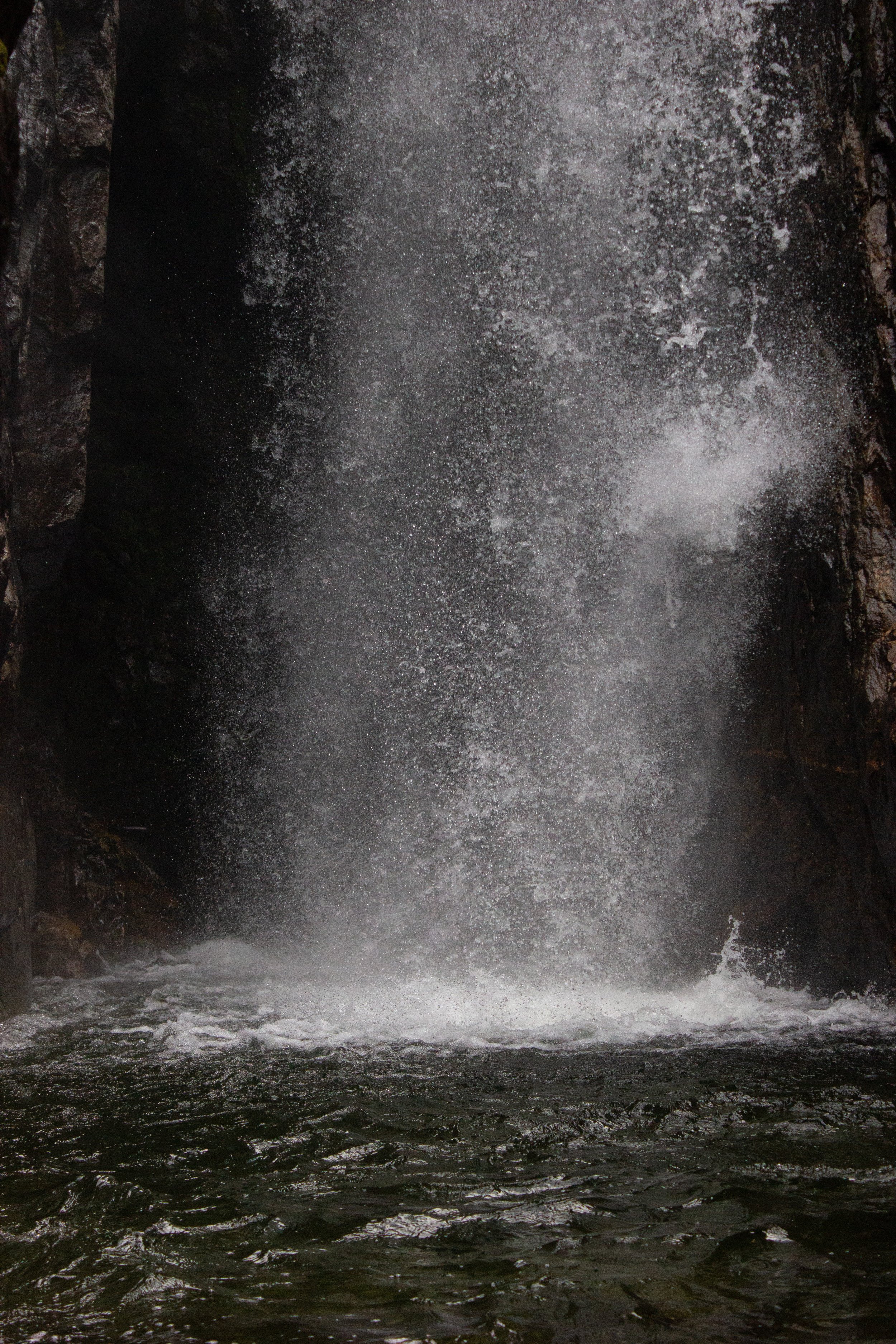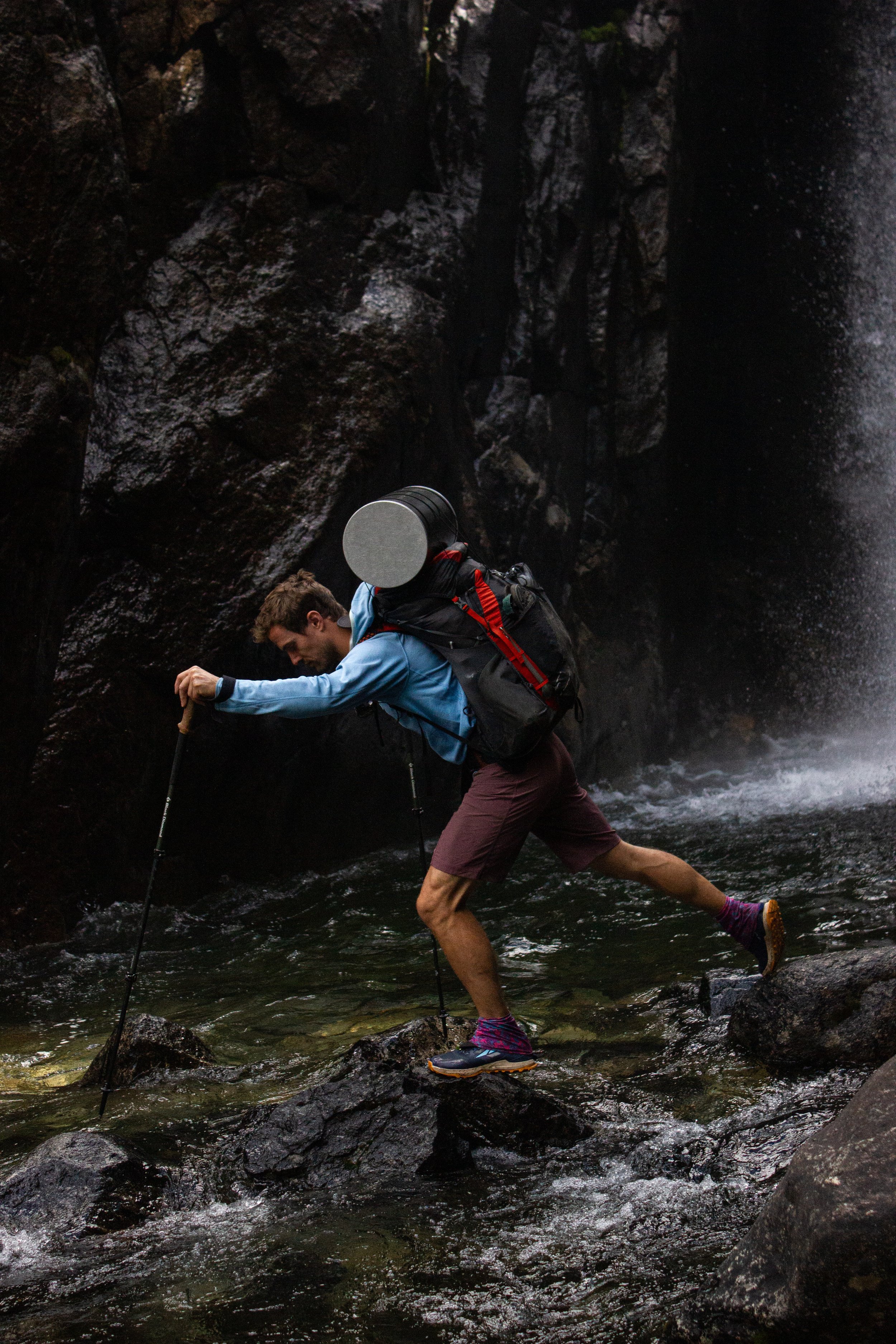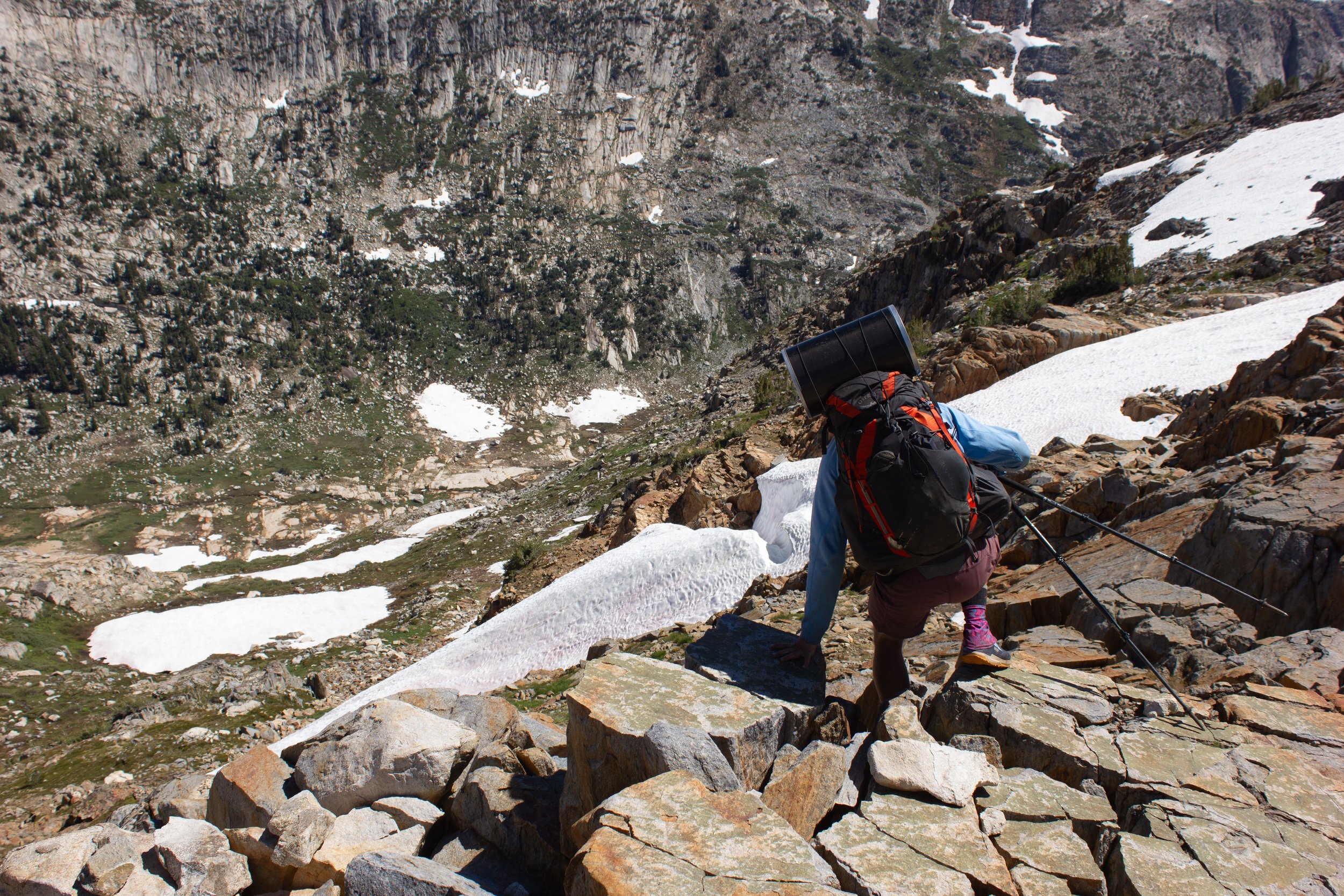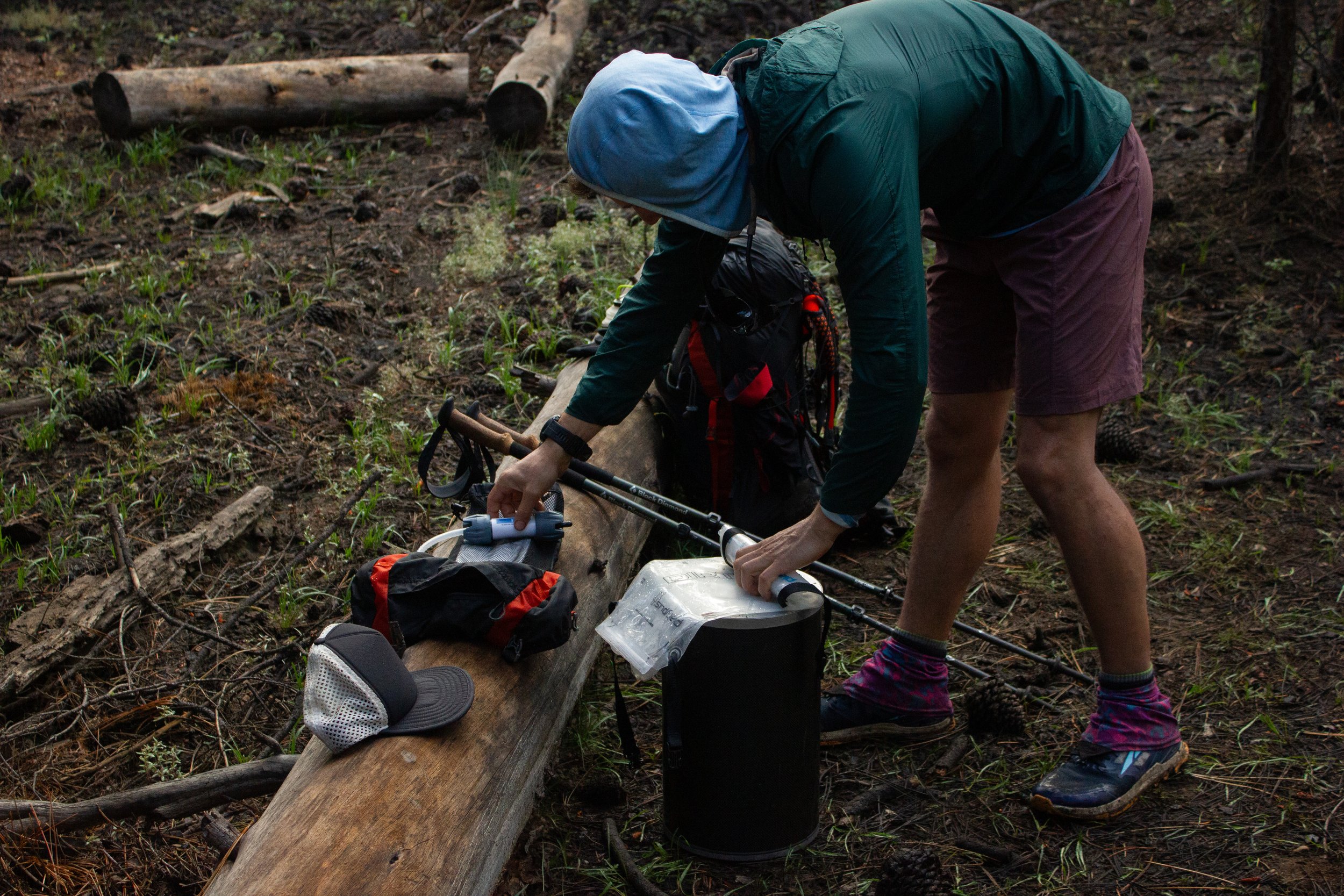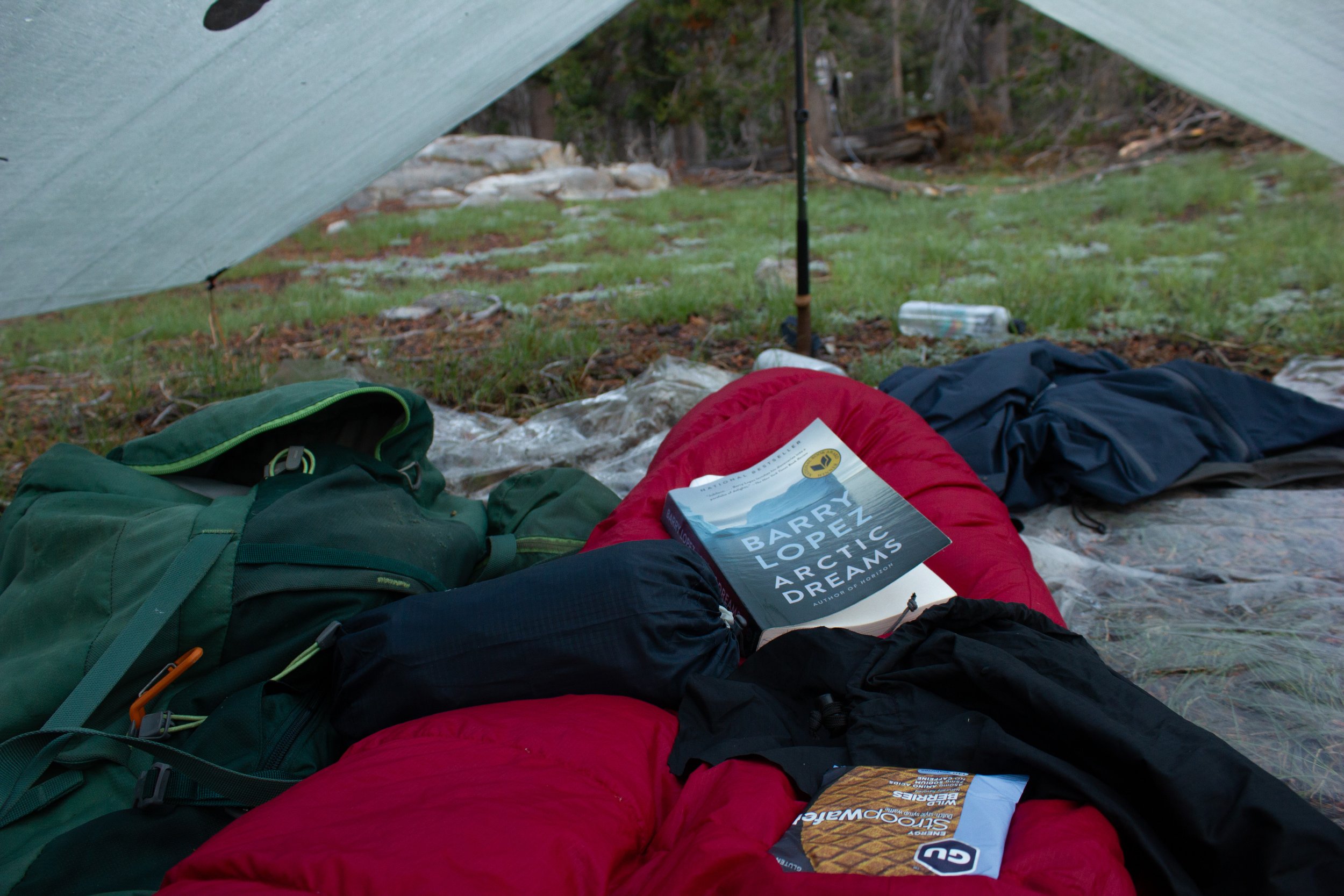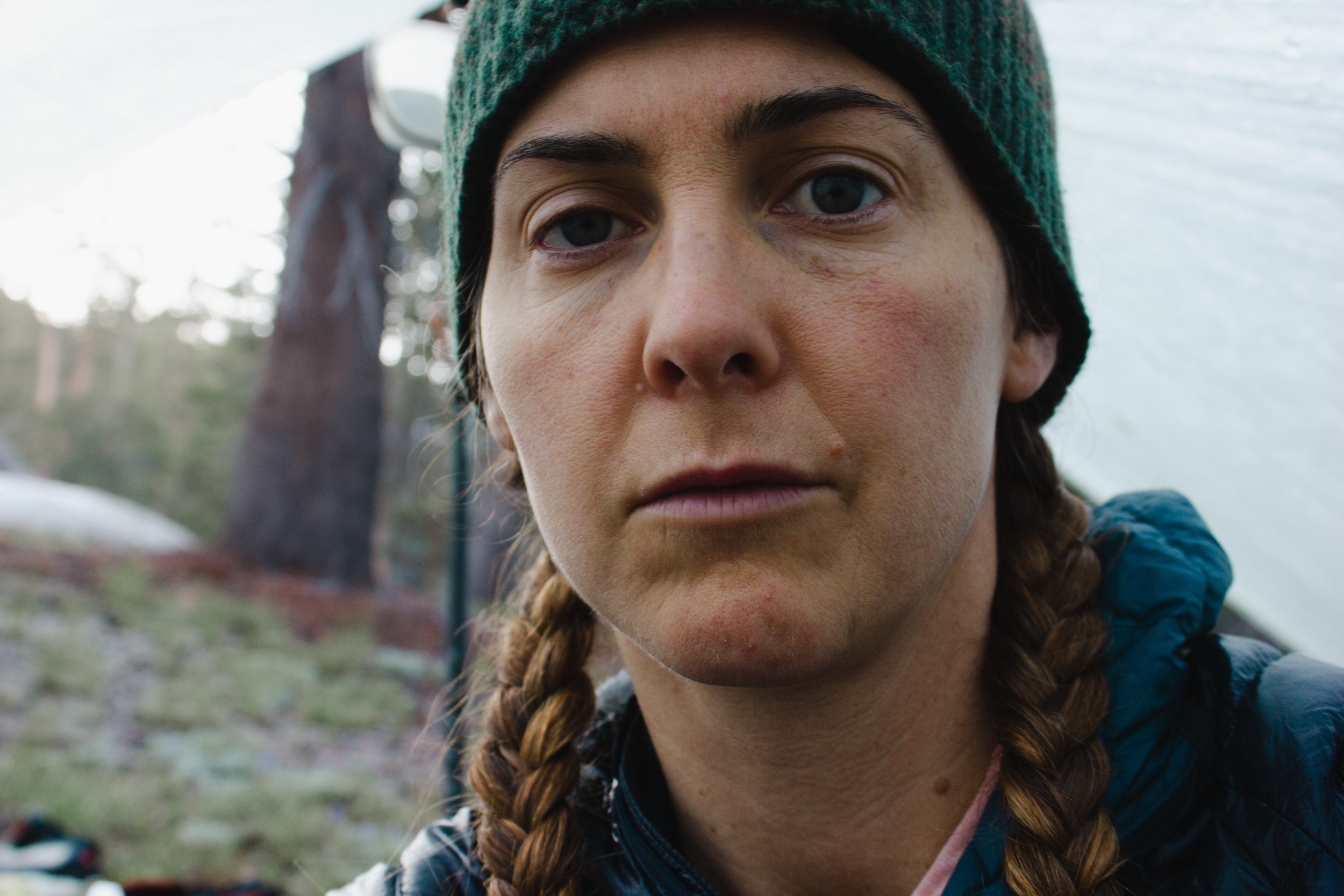Go Ahead And Give it to Me // Part One
Far off the beaten path the trees grow taller than you can imagine. Their steepled caps pierce the sky; their green heads and arms toss and clap and bow in reverence to the swish-swish-swish of the wind; their bodies, beautifully brown, are lined with thick black veins, where the blood of earth pumps in from root to heartwood. In the sharp drag of a deep breath, fresh and clean, a dank scent presses itself upon your lungs and drifts, like a flock of birds, across the ribbed landscape of your tongue. Crushed pine needles; grub-filled dirt black as tar; the soft floral of wild mint; the quench of life and moistness of death and decay.
Bone chilling water runs everywhere. It cascades down cliffs, rushes through canyon floors, drip-drip-drips into lake basins, seeps from fissures in the rock like tears from a baby’s fresh, grey eyes.
Steep angling walls of silver granite, both coarse and cleanly polished, carved and sanded by the patience of glacial time, rise above the towering tree tops, higher still than the clouds on some days. Whip Cream shaped peaks, so perfectly bare and blank that they appear as desolate as a desert; and yet, of course, are rich with minuscule life. Crimson algae spreads like a crime scene across a snowfield; crawly-leggy things live in the sun cups and feed on the blood-red snow; thick-limbed spiders dwell in the shadows of boulder fields; marmots cackle and scurry around in their thick fur coats like raccoons on city streets; sea-foam grasshoppers spring into the air; potbelly frogs echo between animal paw prints; beaked blood suckers buz-buz-buz in all the ears. Such life populates the quiet, areal space of a mountain peak. A plethora of small, enduring, peculiar existence: earth’s most ardent survivalists.
There in the high country, where few humans venture, where life is lived and lost without rank, an invisible force takes hold. Immediate. Firm. Definitive. The sheer altitude of the place seizes you like a ghost, like a haunting, and presses upon you a bone buckling kind of weight that turns feet to sinking anchors that yearn for the bottom of something, legs to sloppy noodles that hang sore and limp from jammed hips, minds to fire breathing dragons that spits fire back and forth, from ear to shining ear. It’s as though the very beauty you look upon presses down on you, conspiring to scare you off, clear you out, whittle you down to insignificance. And while this force, this haunting, Nature’s hand, makes for a perilous start to every journey, there is a solitary mercy to be found; that it’s all, as everything can’t help but be, temporary.
Once your small self sacrifice is offered, your benediction laid bare, the weight begins to lift. And when it does you discover that your body has transmuted itself into a more nimble, enduring version. Your skull cracks open and from it inhibition, fear, worry, resistance, homely thinking, oozes out and evaporates like a cloud in the sun. You become the wordless permission you need to continue onward and upward. You become the open passage into the vast wild you are seeking.
This right of passage, this ritual haunting, is what we backpackers call the break-in period. There’s always, always a break-in period.
Each of us has to find our own way into brokenness, and endure sifting through the pieces that scatter about. Nobody can tell you what it will take, what it will feel like, what exactly you will have to give, what you must accept. Mother Nature will hammer down upon you like a butcher’s mallet to a slab of meat until you yield softness, tenderness, openness. But the bodily thrashing isn’t the most difficult part. Sometimes the bigger challenge is the uncertainty that circles above like a vulture, waiting for a juicy bite.
You’ve heard the expression, “walk a day in their shoes”, right? A figure of speech meant to envisage humility and invoke empathy. Well, this break-in period, this ritual haunting, this tenderizing of body, mind and spirit, is the opposite of that. Shared empathy and humility don’t quite translate in the school of the wild. Nature doesn’t speak our fragile, manicured, woefully human, languages of love. Instead, she seems to demand we learn, and relearn, her’s. Everything that is human, evolved, and so inevitably modern about us is exactly what the wilderness can’t help but snatch up and tear apart. And I love her for it. I find comfort in her two mountain size hands, the wind from their movement, cold and thin; the way she can render my entire existence inconsequential, as if I were only a delicate arch, a fragile wishbone at the center of a weather-beaten carcass; the way she can so swiftly crack me and drink me all down.
Nobody can walk a single step in your shoes, not out there. Every painful step belongs to you and you alone. Learning, or remembering, how to own your steps is part of the break-in period.
I never remember how brutally difficult those first few days in the mountains are. I always think I will. Sometimes I even fantasize about being smarter now, tougher. Then, by the end of day two, I’m surprised, stunned, gutturally humbled by the level of despondency I’m capable of reaching. But as I said before it’s only a right of passage, a ritual haunting, a single raindrop in an otherwise clear sky. It’s the fire I have to walk through, that I choose to walk through, to get to that other part of myself that thrives on the other side. Like scorched earth after a wildfire, I am both dwindle down and nourished, minimized and bestowed upon.
Perhaps we all have a part of ourselves, an animal self, that knows the way through the fire and trusts the scorched self that exists on the other side of it.
Someone once told me that all human choice and action can be attributed to either hurting or healing. I don’t know if that is true, but I do know that Nature hurts and heals in all the ways we want her to and don’t want her to. The hurting ain’t easy, but my god, the healing is extraordinary.
So, why do it? Why venture off the beaten path into the wild? Why walk through the fire and heal and hurt and break?
I don’t know.
I only know that I do because I simply can’t not. Because, in the words treasured by my dear Geoff: “The world is big and I want to have a good look at it before it gets dark.”
Part 2 coming next week….
Photography & words: Erin Cookston
Quote: John Muir


